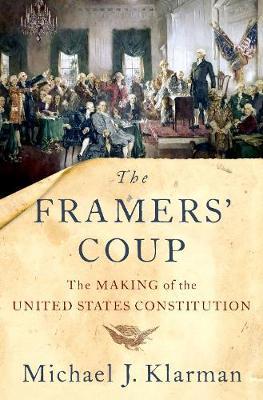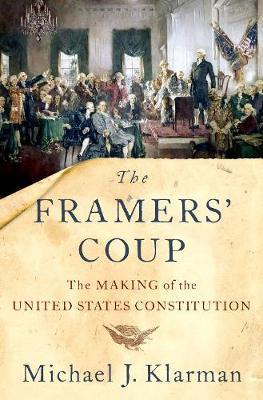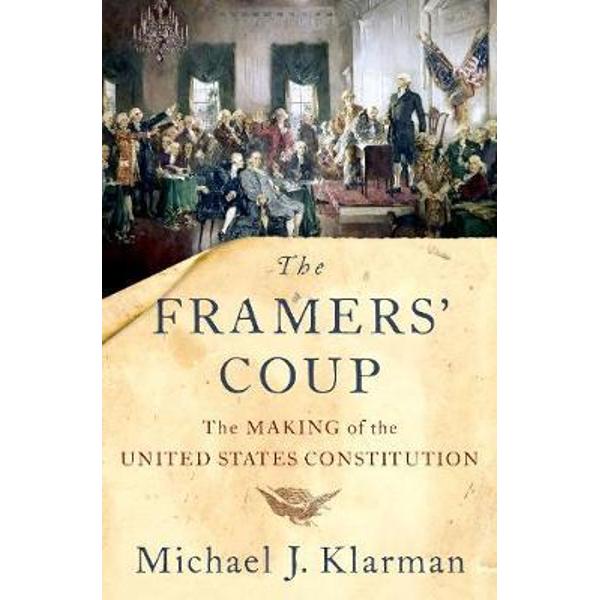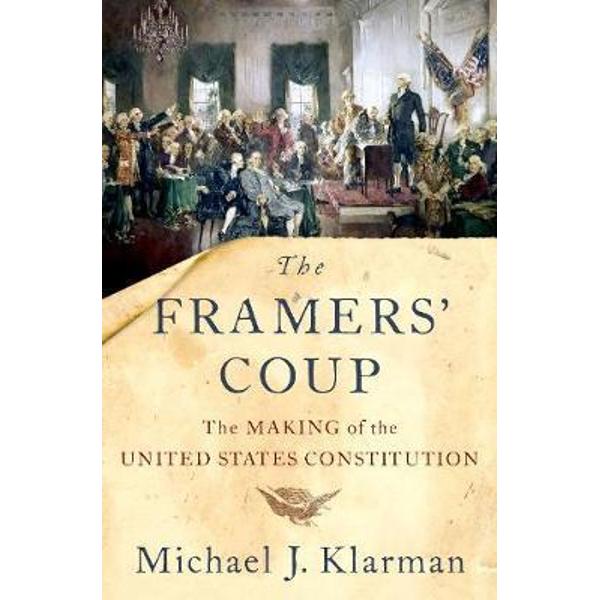Framers' Coup
Framers' Coup
told largely through the voices of the participants, Michael Klarman's The Framers' Coup narrates how the Framers' clashing interests shaped the Constitution-and American history itself.
The Philadelphia convention could easily have been a failure, and the risk of collapse was always present. Had the convention dissolved, any number of adverse outcomes could have resulted, including civil war or a reversion to monarchy. Not only does Klarman capture the knife's-edge atmosphere of the convention, he populates his narrative with riveting and colorful stories: the rebellion of debtor farmers in Massachusetts; George Washington's uncertainty about whether to attend; Gunning
Bedford's threat to turn to a European prince if the small states were denied equal representation in the Senate; slave staters' threats to take their marbles and go home if denied representation for their slaves; Hamilton's quasi-monarchist speech to the convention; and Patrick Henry's herculean efforts to
defeat the Constitution in Virginia through demagoguery and conspiracy theories.
The Framers' Coup is more than a compendium of great stories, however, and the powerful arguments that feature throughout will reshape our understanding of the nation's founding. Simply put, the Constitutional Convention almost didn't happen, and once it happened, it almost failed. Even after the convention succeeded, the Constitution it produced almost failed to be ratified. Just as importantly, the Constitution was hardly the product of philosophical reflections by brilliant,
disinterested statesmen, but rather ordinary interest group politics. Multiple conflicting interests had a say, from creditors and debtors to city dwellers and backwoodsmen. The upper class overwhelmingly supporte
PRP: 211.10 Lei
Acesta este Prețul Recomandat de Producător. Prețul de vânzare al produsului este afișat mai jos.
189.99Lei
189.99Lei
211.10 LeiLivrare in 2-4 saptamani
Descrierea produsului
told largely through the voices of the participants, Michael Klarman's The Framers' Coup narrates how the Framers' clashing interests shaped the Constitution-and American history itself.
The Philadelphia convention could easily have been a failure, and the risk of collapse was always present. Had the convention dissolved, any number of adverse outcomes could have resulted, including civil war or a reversion to monarchy. Not only does Klarman capture the knife's-edge atmosphere of the convention, he populates his narrative with riveting and colorful stories: the rebellion of debtor farmers in Massachusetts; George Washington's uncertainty about whether to attend; Gunning
Bedford's threat to turn to a European prince if the small states were denied equal representation in the Senate; slave staters' threats to take their marbles and go home if denied representation for their slaves; Hamilton's quasi-monarchist speech to the convention; and Patrick Henry's herculean efforts to
defeat the Constitution in Virginia through demagoguery and conspiracy theories.
The Framers' Coup is more than a compendium of great stories, however, and the powerful arguments that feature throughout will reshape our understanding of the nation's founding. Simply put, the Constitutional Convention almost didn't happen, and once it happened, it almost failed. Even after the convention succeeded, the Constitution it produced almost failed to be ratified. Just as importantly, the Constitution was hardly the product of philosophical reflections by brilliant,
disinterested statesmen, but rather ordinary interest group politics. Multiple conflicting interests had a say, from creditors and debtors to city dwellers and backwoodsmen. The upper class overwhelmingly supporte















